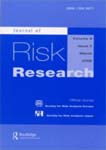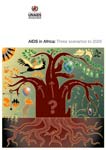The critical and most difficult challenge is to effect change – to change the rules, the minds of people, the nature of the current establishment. This is not easy, as people first have to face the hard truth that change is essential, and this can sometimes threaten lifestyles and careers.[It] does not happen in big steps: little mistakes are much easier to correct...
Professor Jorge Alberto Costa e Silva,
Director of the International Center for Mental Health Policy and Research, New York University, EPO Interview
...many people would hesitate to steal a blank floppy disk worth 1 euro, but might not hesitate to make a copy of the Windows operating system that is worth 150 euros. While there is understanding regarding the value of physical property, the same is not true for the value of intangible property.
Dr Francis Gurry,
Deputy Director General, World Intellectual Property Organization (WIPO), EPO Interview
Trust provides us with the lubrication to ease inherent frictions between society and its regulators... [It] means acceptance of decisions by the constituents without questioning the rationale behind them – in effect being asked to accept a 'risk judgement' made by the regulators.
Professor Ragnar Löfstedt,
Kings Centre for Risk Management, King's College, London
We are faced with uncontrolled population explosion, resulting in energy and food requirements and the destruction of the environment, yet these problems go unsolved. ...The key to the survival of humankind will be a race against time – how many of our planet's problems can be overcome before it is too late. The role of the patent system in this race is limited.
Toyomaro Yoshida,
Director General, AIPPI, Japan, EPO Interview
Much of what is promoted as objective analysis is, at best, a faithful application of approaches in which values are deeply embedded... Analytically oriented professionals are often among the most unreflective about their own embedded ethic and the most critical of other people's ethics.
Professor Baruch Fischhoff,
Department of Social and Decision Sciences and Department of Engineering and Public Policy, Carnegie Mellon University, RiskWorld Interview
We are all members of a society where what we do and say, how we act, influences the democratic development in our own country. There is nothing in any democratic society that is not linked to either the way you vote, the way you contribute, not only through your vote but through what you do... We all have to ask ourselves; Who have we elected? What have I myself done? It's not enough just sitting somewhere pointing fingers.
Dr. Gro Harlem Brundtland,
Former Director General of the World Health Organisation, UNAIDS Interview
In a world in which there is an increasing literate, educated public, always attentive to new risks, 'Chicken Little' (who thought the sky would fall in) is everywhere, putting pressure on governments to act.
Professor Robert Kagan,
Director of the Center for the Study of Law and Society, University of California in Berkeley, RiskWorld interview
The question is whether one can have urbanisation-modernisation without westernisation... In reality Africa adopted the worst of both worlds – we westernised without modernising; so we assimilated those aspects of Western culture which very often were non-productive.
Professor Ali A. Mazrui,
Institute of Global Cultural Studies, Binghamton University, New York, UNAIDS Interview
The most significant challenge is the cultural background of the Chinese. Competition is not an admired trait. Our scholars are Confucian, and their thinking is that... if you invent something, it should not be protected from others using it.
Professor Zheng Chengsi and Professor Mingde Li,
Intellectual Property Centre, China Academy of Social Sciences, EPO Interview
How do we use that great strength we have – the Indian mind – to create and valorise knowledge? India is a poor country, and one of its greatest challenges is to have a balanced intellectual property regime that will protect not only the interests of the innovator but also those of society. This is a key question for India.
Dr Ramesh Mashelkar,
Director General, Council of Scientific and Industrial Research, India, EPO Interview
Risk as a property is fluid, and it can crystallise differently at different points of time and space. The same thing can be risky or not in a number of different contexts... Management structures as single point interventions are therefore not well adapted to many of the risks that society faces.
Professor Sheila Jasanoff,
Pforzheimer Professor of Science and Technology Studies, John F Kennedy School of Government, Harvard University, RiskWorld interview
Culture can only be described relative to something else. There is no such thing as a global culture, although the perception of global opportunities and threats exists...
Geert Hofstede,
Professor Emeritus in Organisational Anthropology and International Management, Maastricht University, RiskWorld interview
For thousands of years the recuperation dogma
restitutio ad integrum – reinstatement of human wholeness or intactness – dominated the field of medicine. Today this idea is gradually being forced to share its status with the
transformatio ad optimum idea – reshaping man to attain the optimum result or even perfection.
Dr Bert Gordijn,
Department of Ethics, Philosophy and Medicine, University of Nijmegen, EPO Interview






















